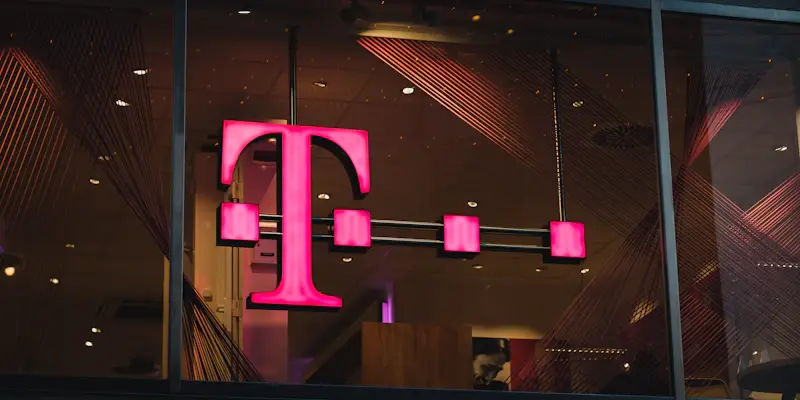Recently demonstrated significant advancements in 5G technology, T-Mobile US has achieved exceptional downlink speeds of up to 6.3 Gbps through successful field testing of six-component carrier aggregation (6-CA) on its 5G Standalone (SA) network. This breakthrough was accomplished using cutting-edge Nokia equipment and Qualcomm’s latest X85 5G modem-RF chips, applying both a commercial Samsung Galaxy S25 and an advanced mobile test device. The Samsung Galaxy S25 recorded real-world speeds of 4.3 Gbps, while the test device reached peak speeds of 6.3 Gbps, representing a remarkable milestone in the evolution of 5G technology.
Advanced Collaboration and Technological Integration
This achievement underscores T-Mobile’s unwavering commitment to pushing the frontiers of 5G performance by integrating multiple technological advancements and leveraging a diverse array of frequency bands. The landmark testing incorporated low to mid-band spectrum, including 2.5 GHz, PCS, AWS, and 600 MHz frequencies. Ulf Ewaldsson, president of technology at T-Mobile US, remarked that this milestone reflects the carrier’s dedication to delivering top-tier performance, reliability, and innovative solutions to its customers across the nation.
An integral part of the success was the collaborative effort with industry giants such as Nokia and Qualcomm. Tommi Uitto, president of mobile networks at Nokia, highlighted their contribution by integrating Massive MIMO radios, advanced beamforming techniques, and high-order carrier aggregation and modulation technologies. Qualcomm’s senior vice president, Durga Malladi, also emphasized the company’s role in setting new benchmarks in wireless performance, driving technological advancements that pave the way for impressive data speeds and connectivity.
Previous 5G Advancements and Innovations
This breakthrough is built on a solid foundation of prior achievements in 5G technology by T-Mobile. Earlier in the year, the company successfully tested 6-CA in sub-6 GHz spectrum, achieving remarkable download speeds of 3.6 Gbps on a commercial 5G network through collaboration with partners like Ericsson and Qualcomm. This involved the aggregation of two channels each from 2.5 GHz, PCS, and AWS spectrum. Further, T-Mobile experimented with New Radio Dual Connectivity (5G DC) on its 5G SA network by combining 2.5 GHz and millimeter-wave spectrum in November of the previous year, reaching uplink speeds of 2.2 Gbps.
In May, T-Mobile pushed the boundaries again by introducing four-component-carrier aggregation across its 5G SA network. This innovation resulted in speeds up to 3.3 Gbps, utilizing two 2.5 GHz channels, one 1.9 GHz channel, and one 600 MHz channel. The first device to benefit from these capabilities was the Samsung Galaxy S23. Moreover, at the 2023 Mobile World Congress in Barcelona, T-Mobile showcased five-component-carrier aggregation in sub-6 GHz spectrum, achieving impressive speeds of over 4.2 Gbps with the assistance of Nokia and Qualcomm.
Commitment to 5G Innovation and Future Prospects
T-Mobile has consistently demonstrated its commitment to enhancing 5G infrastructure through increased bandwidth, superior speeds, and dependable connectivity. The recent advancements in technology and strategic collaborations position T-Mobile at the leading edge of 5G innovation. By continually integrating novel technologies and expanding its reach, T-Mobile is setting the stage for the next generation of wireless connectivity and creating substantial value for its customers.
Moreover, the successful deployment of six-component carrier aggregation signals a new era in 5G technology that promises to deliver unprecedented performance and reliability. As the technology evolves, T-Mobile is poised to leverage its expertise and infrastructure to provide an exceptional user experience. The partnerships with Nokia and Qualcomm further underscore the carrier’s commitment to driving innovation and achieving cutting-edge advancements in wireless communication.
Future Considerations
Moving forward, T-Mobile’s continuous pursuit of innovation and technological integration presents exciting opportunities for the future. The company’s commitment to exploring and implementing advanced 5G technologies positions it well to handle the growing demand for faster, more reliable wireless services. As new technological breakthroughs emerge and customer expectations increase, T-Mobile’s proactive approach ensures it remains at the forefront of the industry, setting new standards for performance and reliability.
The introduction of six-component carrier aggregation is a testament to T-Mobile’s vision for the future of wireless connectivity. It demonstrates the carrier’s ability to not only meet but exceed industry standards and expectations. Customers can look forward to experiencing enhanced network performance and reliability, paving the way for innovative applications and services that will transform everyday connectivity.
Conclusion and Future Steps
Recently, T-Mobile US showcased significant advancements in 5G technology, achieving impressive downlink speeds of up to 6.3 Gbps during field tests using six-component carrier aggregation (6-CA) on its 5G Standalone (SA) network. This milestone was reached with the help of state-of-the-art Nokia equipment and Qualcomm’s latest X85 5G modem-RF chips. The tests were conducted on both a commercial Samsung Galaxy S25 and an advanced mobile test device. The Samsung Galaxy S25 demonstrated real-world speeds of 4.3 Gbps, while the specialized test device hit an outstanding peak speed of 6.3 Gbps. These results mark a significant leap forward in the evolution of 5G technology, promising to enhance network performance and user experience. T-Mobile’s success in these field tests underscores the potential for faster, more reliable wireless communication, moving us closer to fully realizing the benefits of next-generation mobile networks.

